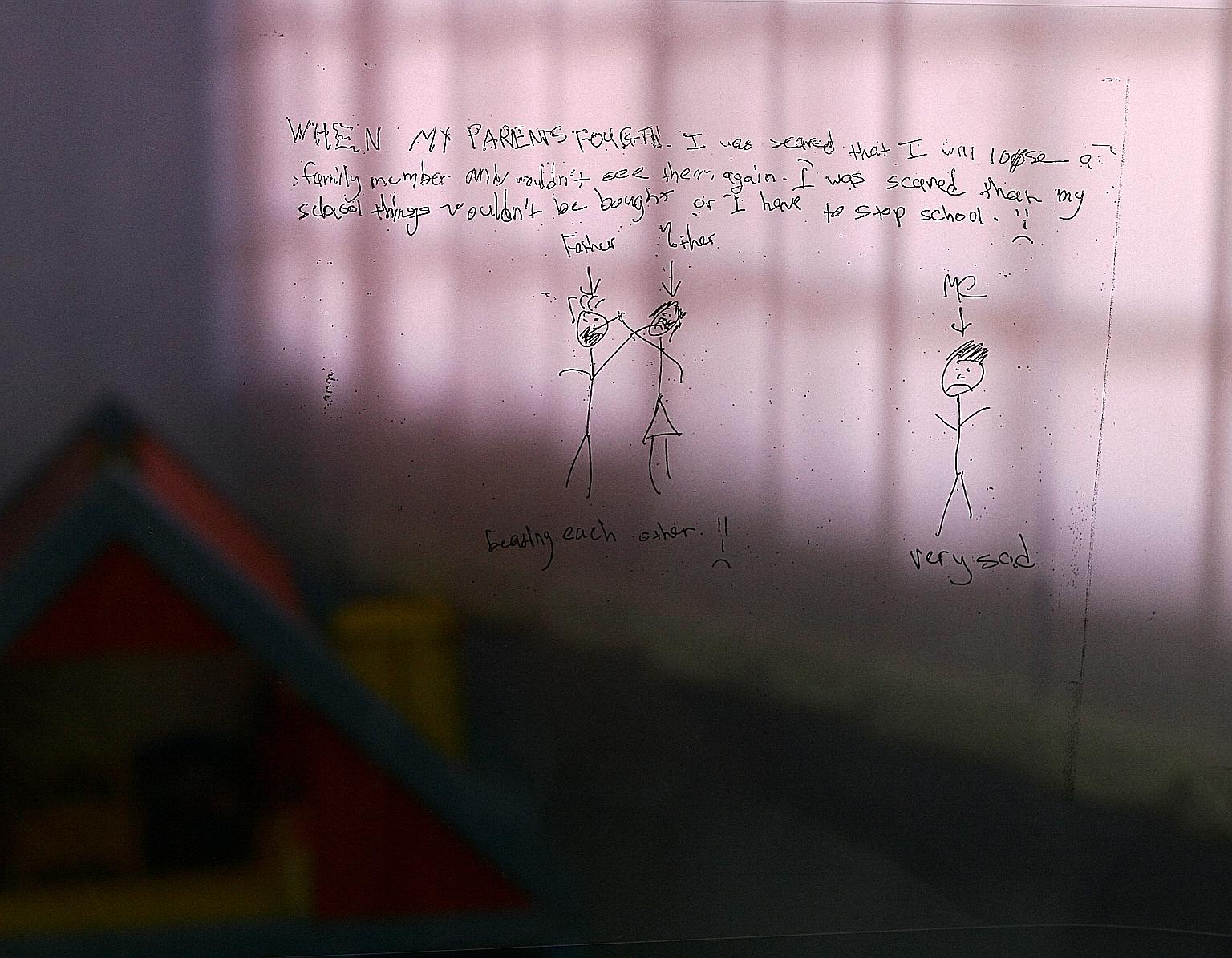Caught in the middle: How changes to Women's Charter can help families affected by divorce
Sign up now: Get ST's newsletters delivered to your inbox

A child pens his thoughts on his parents' impending divorce during a counselling session. Often, children are the ones who suffer the brunt of their parents' disagreements.
ST PHOTO: MARK CHEONG
Priscilla Goy
Follow topic:
Around one in five marriages here ends in divorce.
When couples break up, the children are often hardest hit.
The latest changes to the Women's Charter, approved by Parliament last week, aim to better safeguard their welfare. These changes seek to help parents on the brink of divorce come to an agreement on matters concerning their children.
They will also help divorced women secure maintenance payments, and compel a small group of women to support their incapacitated former husbands.
Insight looks at what this means for children, women and men affected by divorce, and whether other changes may be needed.
Protecting children caught in divorce

A young girl, caught in the middle of her parents' divorce, was told by her paternal grandmother that if she really loved her dad, she should stop thinking of her mum.
"The little girl grieved over this, but hid it from her dad and grandmother. She didn't want to disappoint them," Social and Family Development Minister Tan Chuan-Jin said last Monday in Parliament.
He was making the case for changes to the law to better protect children caught up in divorce.
Reluctance to speak up at post-divorce counselling session

The Parenting Pact programme is compulsory for divorcees who have children under the age of 21 and who have agreed on all divorce matters.
PHOTO: THE NEW PAPER
One divorcee mother sent several text messages on her phone during the two-hour Parenting Pact session led by a counsellor. Then she checked her fingernails.
Meanwhile, the counsellor talked about the impact of divorce on children, co-parenting with the former spouse and how parents should care for themselves after divorce.
After the session, the mother left behind the clipboard and pencil supplied - as well as the brochure on divorce support specialist agencies (DSSAs) and the 37-page slide handout that had been provided.
No hiding now for deadbeat dads

Men who refuse to pay their former wives maintenance will now face more pressure to do so.
The Sunday Times looks at the roles maintenance record officers empowered by changes to the law might play, as well as stepped-up protection for vulnerable women in crisis situations, and what more needs to be done.
Should more men be allowed to seek maintenance?

Last year, Justice Choo Han Teck heard the request of a 48-year-old regional sales manager seeking $120,000 in alimony from her former husband, a 47-year-old senior prison officer.
She earned slightly more than him. But under Singapore's maintenance laws, which allowed only women and not men to apply for maintenance from their former spouses, she was eligible to seek maintenance from him.
Taking aim at this, Justice Choo questioned the right of every woman to seek maintenance regardless of circumstances.
Getting to the heart of divorce

Growing up, I had friends whose parents had divorced, who felt torn and miserable, caught between warring parents.
They felt forced to take sides or to even cut contact with their father, because their mothers resented and blamed their dads for the marital breakdown.
Yet, they loved both parents, despite their flaws, failings and the failed marriage.

